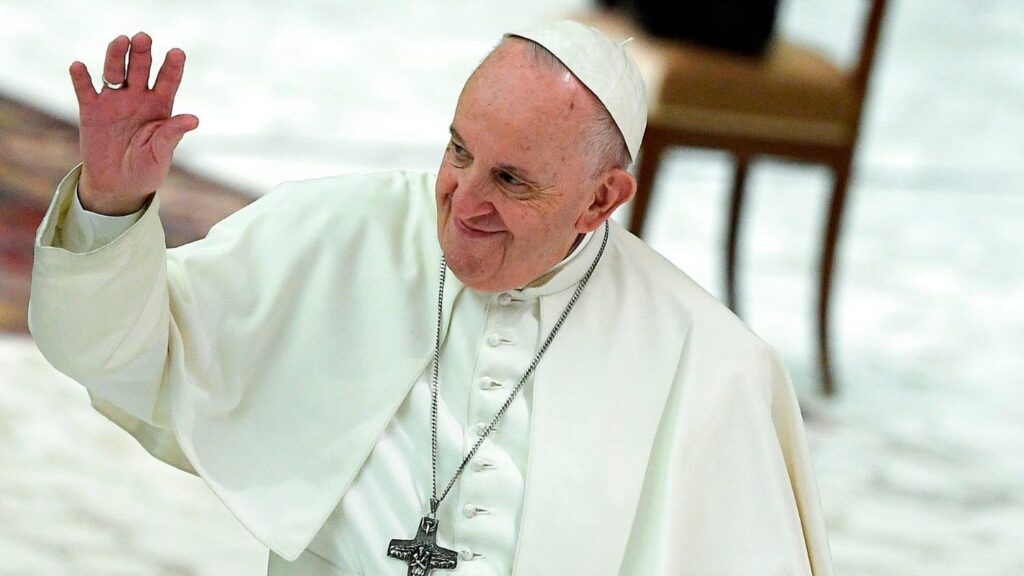Easter
Christ passes by and in these days he does so with the cross on his back and looks at us with a look of clement and caring love

Holy Week highlights love lived at its maximum expression. God so loved the world that he gave up his only-begotten Son, doing what no father would do: giving up his son. He did it from the moment the man betrays him, he rejects him. He could have taken revenge, been indifferent to what happened, or, to the extreme, repudiated it. However, he responds by detaching himself from the loved one, because he was the only one who, being God by becoming man, could pay the guilt. The man did not pay attention to who he offended because he was clouded by pride and selfishness. God, however, did know who he should forgive. How moving is a God who does not stop in the face of malice, contempt, and offense (Precisely, one of his last words before dying was: “Father, forgive them for they do not know what they do”) his mercy was more powerful than I led he to understand and love him in his radical reality and circumstance.
God not only handed over his Son to death, he also decided to reduce him to our human condition, allowing him to be born of a woman. It is through Mary that Jesus enters our history, that he aligns himself with temporal coordinates; whoever had no limits set boundaries; whoever did not possess a body became incarnate; whoever did not know about hunger, thirst, and pain, experienced them intensely; and, whoever knew reciprocal love, was betrayed and despised.
Jesus is born with a defined destiny: to die crucified for you and me. Like God, he knew what was going to happen to him and that is why he anticipated the disgrace, the injustice and the torments that he was going to suffer. However, he did not advance his time, he did not modify natural laws, nor did he dare to modify what his Father had in store for him. His thing was to wait patiently for the arrival of the scheduled day, meanwhile he was teaching and changing history.
The last supper was the prelude. He would soon ascend to the Father. But he also wanted to spend an endearing evening with his disciples. I ardently long for that moment. He wanted to leave, but at the same time, stay. Difficult dilemma. He remains truly present in body, blood, soul and divinity through the institution of the Holy Eucharist. It remains there as food and as a real presence in all the Tabernacles of the world.
Then he heads to the Garden of Gethsemane. There, face on the ground, he prayed: “My Father, if it is possible, pass this cup from me; but not as I want, but as You want.” As the Son of God he anticipated, experiencing with all intensity the cruelty and ignominy that he was going to suffer. As a man he experienced rejection in the face of pain. Solitude of Jesus! His closest friends abandon him. So penetrating, violent and intense was that moment that the gospel says he sweated blood. But his love for his Father and for men was stronger. With his response, Christ gives a new meaning to suffering: he turns it into a redeemer and savior. In this way, he makes it possible for man not to die, but to have eternal life. The man protests the pain. He wants to know the meaning of it and seek an answer and rebukes Jesus, without noticing that He answers him sewn to a cross.
From Herod to Pilate, a long and tedious night in which Christ suffered all kinds of reproaches, sufferings, he was slapped, spit on, scourged and crowned with thorns; to make matters worse, he was condemned to die for fear of the Jews. Like a criminal they made Him carry the cross, but He not only carried it, but embraced it as a sign of our redemption. He walked to Calvary, angry voices and attitudes, insults everywhere, were placed on the side of the road. Embracing the cross, despite extreme fatigue, however, the soldiers, out of fear that he would not reach the summit, “laid hands on a certain Simon of Cyrene who was coming from the countryside and carried the cross, walking behind Jesus.” With this minimal gesture of help, God wanted to involve men in his saving mission.
In the dark solitude of the passion, the Virgin Mary, her mother, gives her Son a balm of tenderness, of union, of fidelity, a yes to the divine will. How I would thank her Mother for that look! He was then crucified, remaining sewn to the cross for three long and painful hours, until he finally gave his Spirit to his Father. Jesus dies so that Christians can live as children of God; with his pain, he won that right for us. Furthermore, he restores grace and supernatural gifts and opens the doors of heaven to them. To pain, a mystery for man, he gives a sanctifying value. Christ passes by and in these days he does so with the cross on his back and looks at us with a look of clement and caring love. Will we Christians be so superficial and light as to not calibrate the samples of endearing love that Jesus offers us with his passion and death? ?
Related

Authority and Good Humor
Edistio Cámere
30 April, 2025
3 min

Dance: Strength, Delicacy, and Dignity
Mar Dorrio
29 April, 2025
2 min

The Four Seasons of Your Life: Much More Than Music
P Angel Espinosa de los Monteros
28 April, 2025
3 min

A Pope Never Goes Away
José Antonio Varela
28 April, 2025
4 min
 (EN)
(EN)
 (ES)
(ES)
 (IT)
(IT)

